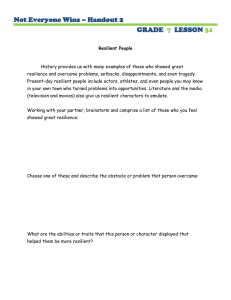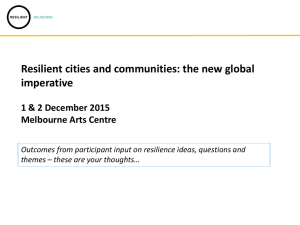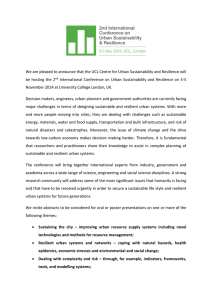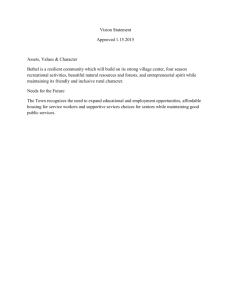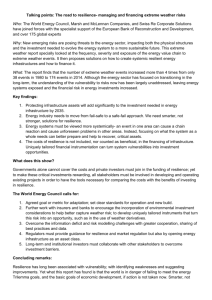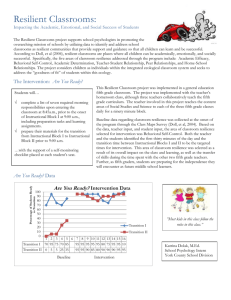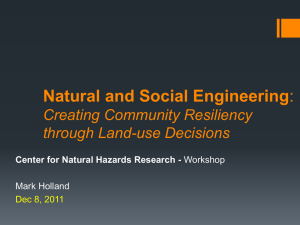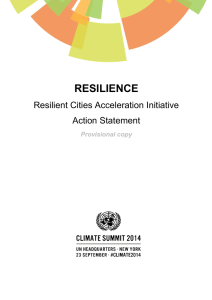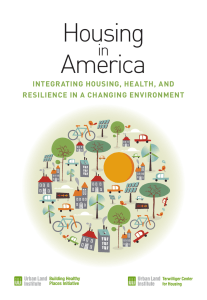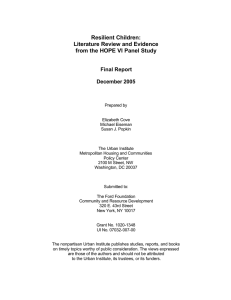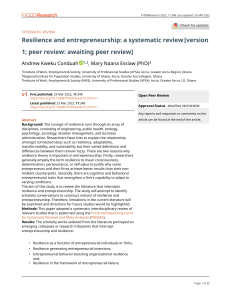File
advertisement
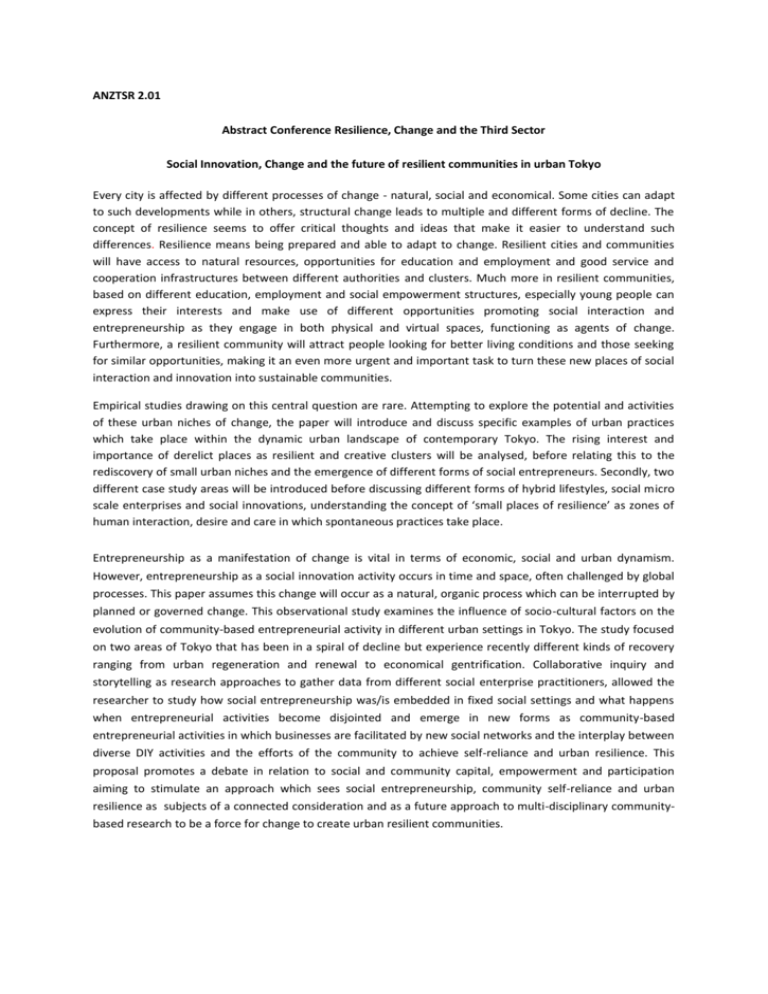
ANZTSR 2.01 Abstract Conference Resilience, Change and the Third Sector Social Innovation, Change and the future of resilient communities in urban Tokyo Every city is affected by different processes of change - natural, social and economical. Some cities can adapt to such developments while in others, structural change leads to multiple and different forms of decline. The concept of resilience seems to offer critical thoughts and ideas that make it easier to understand such differences. Resilience means being prepared and able to adapt to change. Resilient cities and communities will have access to natural resources, opportunities for education and employment and good service and cooperation infrastructures between different authorities and clusters. Much more in resilient communities, based on different education, employment and social empowerment structures, especially young people can express their interests and make use of different opportunities promoting social interaction and entrepreneurship as they engage in both physical and virtual spaces, functioning as agents of change. Furthermore, a resilient community will attract people looking for better living conditions and those seeking for similar opportunities, making it an even more urgent and important task to turn these new places of social interaction and innovation into sustainable communities. Empirical studies drawing on this central question are rare. Attempting to explore the potential and activities of these urban niches of change, the paper will introduce and discuss specific examples of urban practices which take place within the dynamic urban landscape of contemporary Tokyo. The rising interest and importance of derelict places as resilient and creative clusters will be analysed, before relating this to the rediscovery of small urban niches and the emergence of different forms of social entrepreneurs. Secondly, two different case study areas will be introduced before discussing different forms of hybrid lifestyles, social micro scale enterprises and social innovations, understanding the concept of ‘small places of resilience’ as zones of human interaction, desire and care in which spontaneous practices take place. Entrepreneurship as a manifestation of change is vital in terms of economic, social and urban dynamism. However, entrepreneurship as a social innovation activity occurs in time and space, often challenged by global processes. This paper assumes this change will occur as a natural, organic process which can be interrupted by planned or governed change. This observational study examines the influence of socio-cultural factors on the evolution of community-based entrepreneurial activity in different urban settings in Tokyo. The study focused on two areas of Tokyo that has been in a spiral of decline but experience recently different kinds of recovery ranging from urban regeneration and renewal to economical gentrification. Collaborative inquiry and storytelling as research approaches to gather data from different social enterprise practitioners, allowed the researcher to study how social entrepreneurship was/is embedded in fixed social settings and what happens when entrepreneurial activities become disjointed and emerge in new forms as community-based entrepreneurial activities in which businesses are facilitated by new social networks and the interplay between diverse DIY activities and the efforts of the community to achieve self-reliance and urban resilience. This proposal promotes a debate in relation to social and community capital, empowerment and participation aiming to stimulate an approach which sees social entrepreneurship, community self-reliance and urban resilience as subjects of a connected consideration and as a future approach to multi-disciplinary communitybased research to be a force for change to create urban resilient communities.

